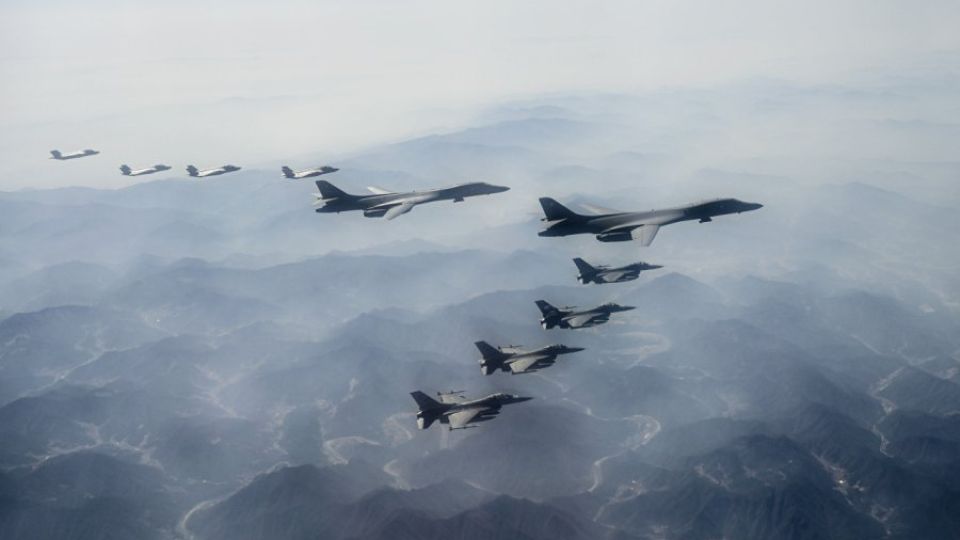February 6, 2024
SEOUL – Over 60 percent of South Koreans are skeptical that Washington would use its nuclear weapons in the event of a Korean Peninsula contingency, according to a survey conducted by the Chey Institute for Advanced Studies on Monday.
The research institute in Seoul, named after SK Group founder Chey Jong-hyun, released the findings of an in-person interview survey conducted on 1,043 Koreans from Dec. 15 last year to Jan. 10 this year, in collaboration with Gallup Korea.
According to the survey results, 60.8 percent of respondents provided a negative response when questioned about their belief in the US employing its “nuclear deterrent” to protect South Korea in the event of a contingency on the Korean Peninsula, even if it involved the risk of potential nuclear attacks from North Korea against the US mainland.
The question’s wording included the assumption that North Korea had attained the capabilities to target the US mainland through the development of missile technologies.
The institute asked the same question in the previous survey conducted between November and December 2022. The positive response was 12 percentage points higher at that time, and 2.6 percentage points higher than those who said the US would not use nuclear weapons.
On growing skepticism toward US nuclear deterrence, Park In-kook, president of the Chey Institute for Advanced Studies, said the observed changes are presumed to reflect not a decline in our citizens’ trust in the US but rather heightened concerns related to North Korea’s advancement in nuclear weapons, its increasingly provocative stance and anxiety over the upcoming US presidential election.
The survey results additionally revealed that 63.4 percent of respondents answered negatively when questioned about whether strengthened trilateral security cooperation among South Korea, the US and Japan through a Camp David summit could effectively resolve the North Korean nuclear threat. In contrast, only 36.6 percent said it would.
Park explained that the outcome suggested that the South Korean people think the “current level of trilateral cooperation falls short in effectively resolving the North Korean nuclear threat.”
Monday’s survey also showed that the perception that “North Korean denuclearization is impossible” increased significantly, with 91 percent of respondents saying so, compared to the previous survey’s 77.6 percent.
In the current security situation, the perceived need for South Korea’s independent development of nuclear weapons remains high. Of the respondents, 72.8 percent agreed it was necessary, though this was a slight decrease from the previous survey result of 76.6 percent.
Park suggested that the marginal decline of 4 percent could be attributed to the strengthened security cooperation with the US and Japan resulting from the Washington Declaration and the Camp David trilateral summit.
Among respondents advocating for the necessity of South Korea’s nuclear armament, 40 percent cited “preparation for potential military provocations by North Korea with advanced nuclear capabilities” as the primary reason.
Additionally, 37.1 percent highlighted their “apprehension about the US exercising adequate military support, including the provision of the nuclear umbrella, in the event of North Korea’s use of nuclear weapons” as their main reason for the endorsement.
The survey findings further indicated that 63.7 percent of respondents held the belief that former US President Donald Trump would not actively pursue resolution of the North Korean nuclear issue if re-elected in the November presidential election.
In response to inquiries about whether a re-elected Trump would advocate for an increase in defense cost-sharing and withdrawal of US forces in South Korea, mirroring his actions in 2016, 78.2 percent of respondents affirmed this possibility.


